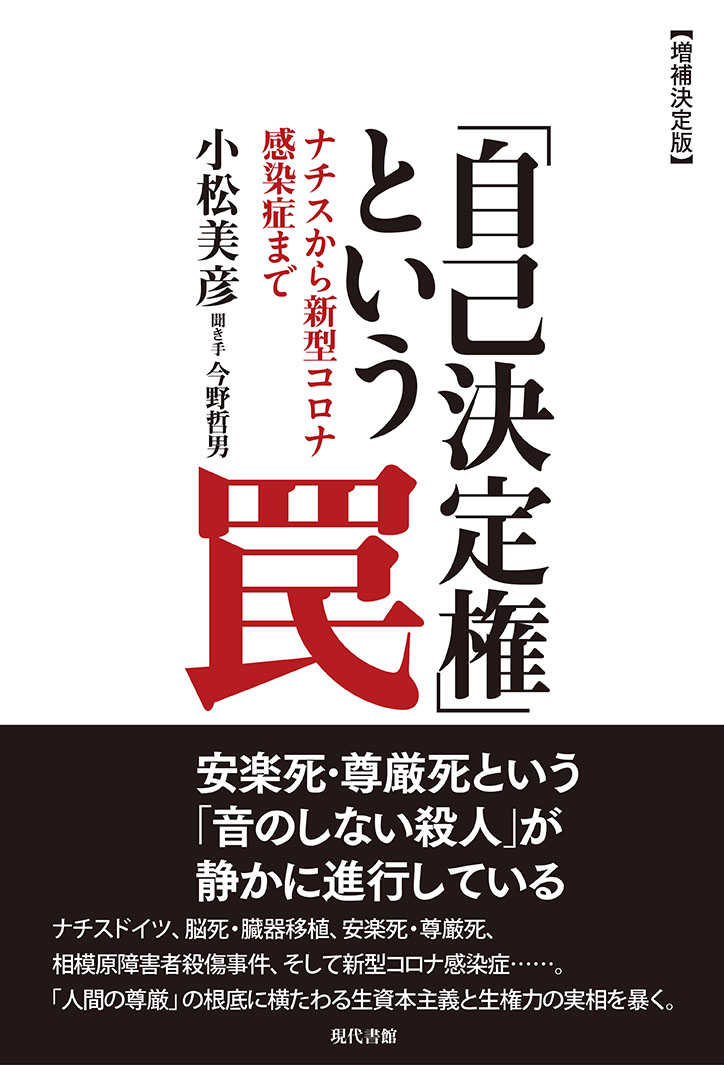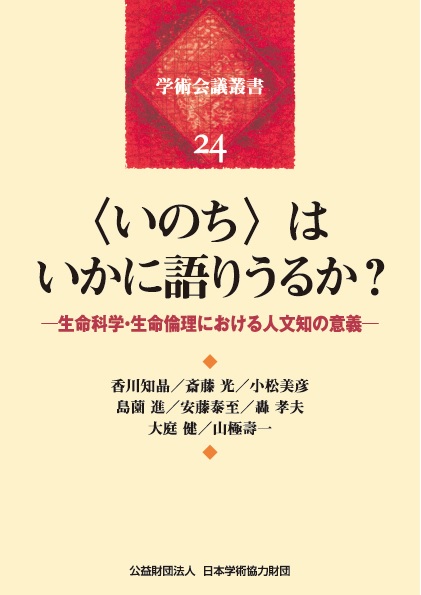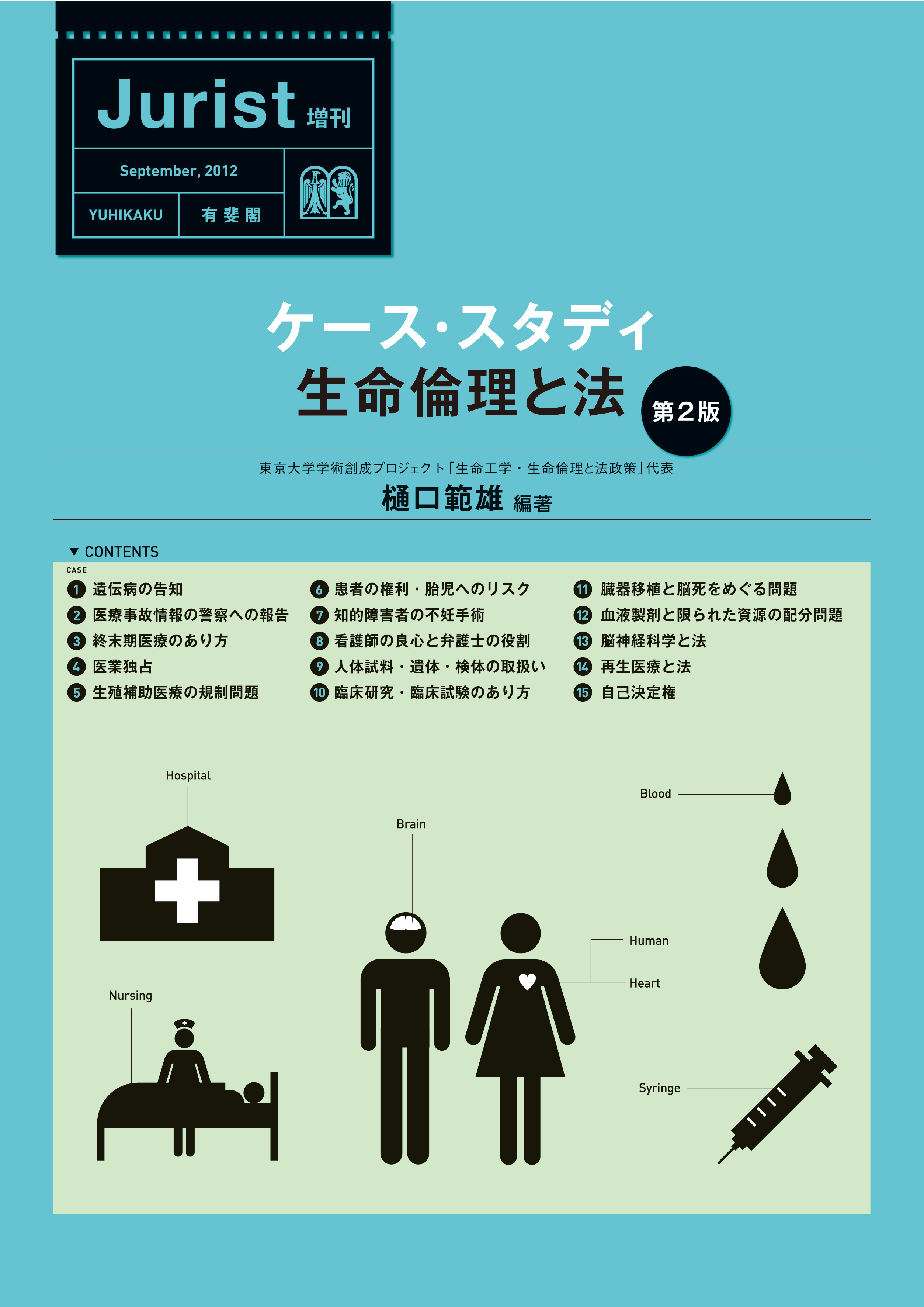
Title
enlarged and definitive edition “Zikoketteiken” toiu wana (The Trap of “Right to Self-determination” - From the Nazis to COVID-19)
Size
376 pages, 127x188mm, softcover
Language
Japanese
Released
December 22, 2020
ISBN
978-4-7684-3585-4
Published by
Gendaishokan
Book Info
Japanese Page
In contemporary Japan, the term “right to self-determination” has been widely disseminated throughout society. Moreover, the way of thinking it expresses tends to be taken as a given. However, these trends began not so long ago.
The right to self-determination is the foundation of bioethics, which was formed in the United States in the early 1970s. It was introduced in Japan in the late 1980s, as a measure to be implemented for brain death and organ transplants, and has gradually spread to other fields and settings. In other words, although organ transplants in general, let alone those from brain-dead patients, tended to be seen as taboo after the infamous heart transplant by Dr. Wada in 1968, the deadlock had been broken by the introduction of the American notion of the right to self-determination. Put simply, this introduced the following reasoning to Japanese society: “People who oppose organ transplants after brain death need not undergo it themselves. However, individuals have the right to offer their organs as well as receive them, and no one has the right to take this right away from others.” This reasoning was hugely persuasive, and even people who felt uncomfortable with it could not articulate a fundamental criticism of it without grasping the source of their discomfort.
The present publication carries out a multilateral critical examination of the right to self-determination as summarized above. However, the process of the publication are somewhat intricate—I published an academic book in 1996 entitled Death Resonates: Toward a Deeper Understanding of Organ Transplants After Brain Death (Shi wa kyoumei suru – noushi zoukiishoku no fukami e), which mounted a principled criticism of the right to self-determination, perhaps the first of its kind in the world. Then, in 2004, I presented this material in a talk for the general public, and this was published as The Right to Self-determination Is a Fantasy (Jikoketteiken wa gensou de aru). The present publication adds some corrections and comments to this book, and three chapters addressing the state of affairs since 2004.
The outline of this publication would be as follows. First, I make a rigorous distinction between “self-determination,” which is practiced in our everyday life, and the “right to self-determination,” which is demanded and recognized as a right. I then critically examine the latter from four main standpoints: a principled standpoint, asking what constitutes the right to self-determination in the first place; a historical standpoint, asking what types of disasters have been brought about by the right to self-determination, in Nazi Germany in particular; a pragmatic standpoint, asking what types of situations are brought about in our everyday life by the right to self-determination; and a standpoint that considers what understandings of life and death underpin the right to self-determination. Based on examples from medical care and life-and-death issues, these standpoints are explained in simple terms.
The three supplementary chapters analyze government strategy and media reports about the right to self-determination, asking how it has functioned as a political device since the previous works were published, particularly in issues around organ transplants after brain death, and euthanasia and death with dignity, and how the new expression and concept of “human dignity” has skillfully been invoked around death. Moreover, regarding the killing and maiming of mentally handicapped people in large numbers in the Sagamihara incident of 2016, I give significant consideration to the defendant’s concept of dignity, and to the historical conditions in Japan that surrounded him. Finally, I contemplate the current serious problems of COVID-19 from some of my original perspectives.
To uncritically accept any circumstances or notions as self-evident is little more than a refusal to think. Furthermore, isn’t the point of scholarship precisely to question tacit assumptions? This publication would present an opportunity to also reflect on this.
(Written by KOMATSU Yoshihiko, Professor, Graduate School of Humanities and Sociology / 2021)



 Find a book
Find a book



